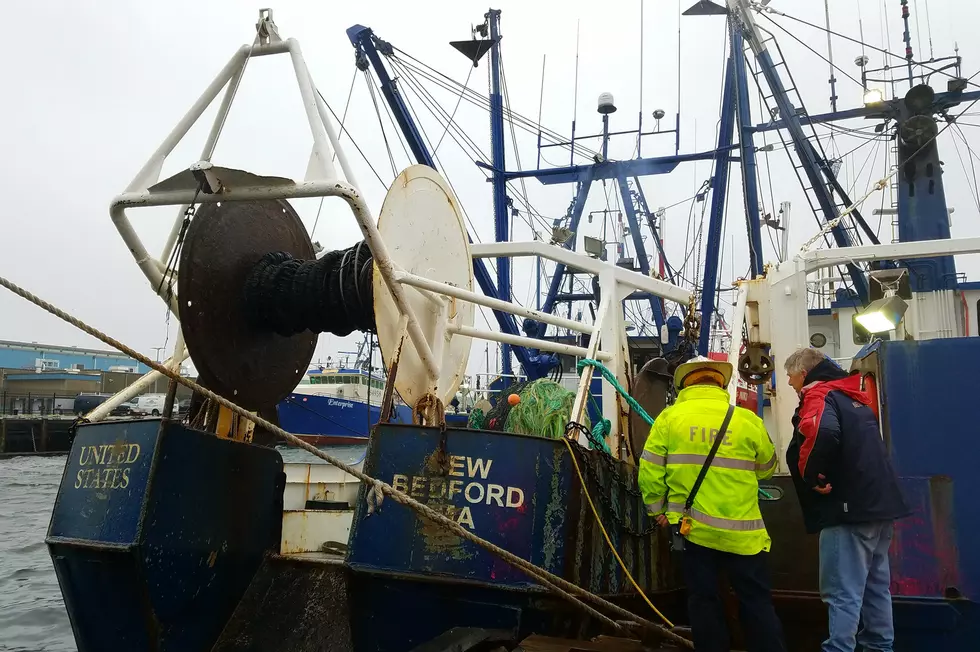
House Passes Magnuson-Stevens Reauthorization with Bipartisan Support
WASHINGTON — The U.S. House of Representatives today passed H.R. 200, the bipartisan Strengthening Fishing Communities and Increasing Flexibility in Fisheries Management Act.
Introduced by Rep. Don Young (R-Ala.), the bill reauthorizes and modernizes the Magnuson-Stevens Act by implementing regional flexibility, tailored management practices and improved data collection for America’s federal fisheries.
The reauthorization is also consistent with what New Bedford Mayor Jon Mitchell lobbied for before Congress last year.
“Improving how we manage our fisheries will help us be better stewards of our resources, while bolstering an economic engine for our country. This bipartisan bill provides much needed flexibility for fishery managers and creates greater fishing access for the public. I want to thank Reps. Young and Graves for their tireless efforts to work across the aisle and move this bill through the House. With this vote, the ball is now in the Senate’s court, and we will work with them to get a final bill to the president’s desk,” Chairman Rob Bishop (R-Utah) stated.
“The North Pacific is the gold standard of fisheries management, and in Alaska the fishing industry is crucial to our local economies and livelihood,” said Congressman Young. “It’s been over a decade since Magnuson-Stevens Act (MSA) was reauthorized, which is why I’m proud to see this bill pass out of the House today with bipartisan support. My bill will update MSA to ensure a proper balance between the biological needs of fish stocks and the economic needs of fishermen and coastal communities. We know that each region works within their unique conditions which is why I fought to ensure the management process will be improved by allowing regional fisheries to develop plans that meet their local needs.”
Proponents of the reauthorization say it will allow the commercial and recreational fishing industries to grow, while still rebuilding overfished and depleted stocks.
The bill gives greater local control over the $144.2 billion commercial fishing industry in the United States.
Specifically, H.R. 200:
--Eliminates unscientific timeframes to rebuild fish stocks that unnecessarily restrict access to fisheries.
--Provides flexibility for fishery managers to apply alternative management strategies better suited to regional needs and specific fish stocks.
--Includes critical reforms advocated by the sportsman community to allow for proper management of recreational fisheries.
--Provides necessary support for stock assessments, cooperative research and fisheries science to empower NOAA to prioritize its core mission of health fisheries management and achieving maximum sustainable yield.
--Authorizes no new federal spending and an estimated $100 million in savings over a similar bill, H.R. 1335, that passed the House with bipartisan support in the 114th Congress.
Additional information on the bill can be found here.
“No legislation is ever able to please every constituency, but Chairman Rob Bishop, Subcommittee Chairman Doug Lamborn, and Chairman Emeritus Don Young deserve a round of applause for developing a bill that addresses the concerns of multiple constituencies and will serve to further improve the Magnuson-Stevens Act, which has left a legacy of success in its wake since Congressman Young and my former Congressman, the late Gerry Studds, were original co-sponsors in 1976,” said Bob Vanasse, executive director of Saving Seafood and its National Coalition for Fishing Communities.
“Legitimate commercial fishing organizations and seafood companies across the nation, together with recreational interests, have spoken in favor of H.R. 200," he added. "It is unfortunate that uncompromising environmental groups and the fishing organizations funded by them did not work more cooperatively over the years during which this bill was crafted. In addition, Congressmen Gene Green and Marc Veasey of the Congressional Sportsmen’s Caucus should be commended for their work across the aisle to bring this important legislation to the floor.”
Information for this story came from a release by the House Committee on Natural Resources via Saving Seafood
More From WBSM-AM/AM 1420









